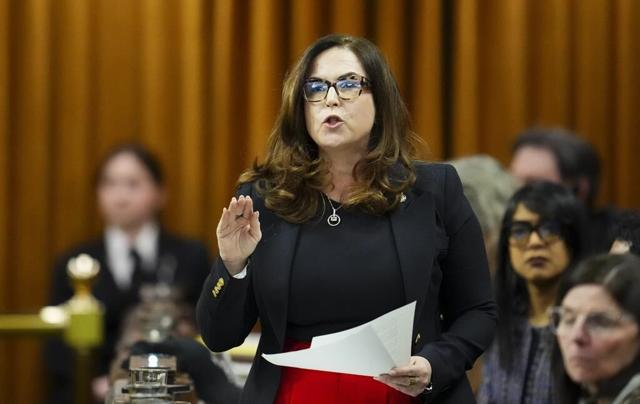
Saks rises during during question period in the House of Commons on Parliament Hill in Ottawa, Monday, April 29, 2024. THE CANADIAN PRESS/Sean Kilpatrick
The British Columbia government is seeking to reinstate the prohibition on public drug use, a move opposed by Ottawa due to a lack of information. Ya'ara Saks, the Addictions Minister, emphasized the need for urgency but stated that she required additional details from the province.
The B.C. administration had requested Health Canada to modify an exemption allowing the decriminalization of hard drugs in the province to once again criminalize public drug use. Saks conveyed the urgency of the decision but indicated that she awaited further information from B.C. to proceed.
While Saks did not specify the information required, her office did not respond immediately to queries for clarification. However, B.C. Health Minister Adrian Dix expressed skepticism regarding the necessity of further information, given that both Saks and Prime Minister Justin Trudeau had been briefed on the matter.
In response to a request for more information received from the province, B.C.'s Ministry of Mental Health and Addictions promptly provided additional data on substance use and potential police guidance. The ministry reiterated its commitment to collaborating swiftly with the federal government to enact these changes and equip law enforcement with the necessary tools to address public drug use effectively.
The decriminalization of small amounts of certain illicit drugs, including heroin, fentanyl, cocaine, and methamphetamine, has been in effect in B.C. for over a year under a Health Canada exemption. However, concerns from law enforcement, healthcare workers, and the public prompted B.C. Premier David Eby to request the amendment of the exemption to criminalize public drug use, excluding private spaces and specific locations covered by the decriminalization program.
Dix revealed that Eby had already discussed the matter with Trudeau, while Saks had engaged with B.C. Addictions Minister Jennifer Whiteside. Although the details of the requested information remained undisclosed, Dix emphasized the province's cooperation and transparency in providing all necessary information to expedite the process.
A formal request for the amendment was submitted by B.C. to Health Canada, emphasizing the importance of treating addiction as a health issue rather than a criminal one. The letter underscored the need for collaboration with Health Canada to update the exemption expediently, acknowledging the ongoing public health crisis exacerbated by the opioid epidemic.
The opposition Conservatives, led by Pierre Poilievre, have seized on Eby's request, urging the immediate reinstatement of the ban on public drug use in B.C. Conservative MP Brad Vis criticized Saks for being out of touch with the realities of drug decriminalization and public drug use in the province.
Additionally, the BC United party, led by Kevin Falcon, introduced legislation seeking to dismantle the NDP government's drug decriminalization policy, which passed its first reading in the B.C. legislature. Poilievre also urged Trudeau to reject Toronto's request to extend its decriminalization pilot, arguing that it would exacerbate issues faced by vulnerable Canadians.
Trudeau dismissed Poilievre's concerns as fearmongering, reiterating that the federal government collaborates with provinces and public health systems on proposals to address the opioid epidemic. Meanwhile, Toronto Public Health affirmed its commitment to decriminalization, with Medical Officer Dr. Eileen de Villa emphasizing the need to prevent drug use in public spaces.















